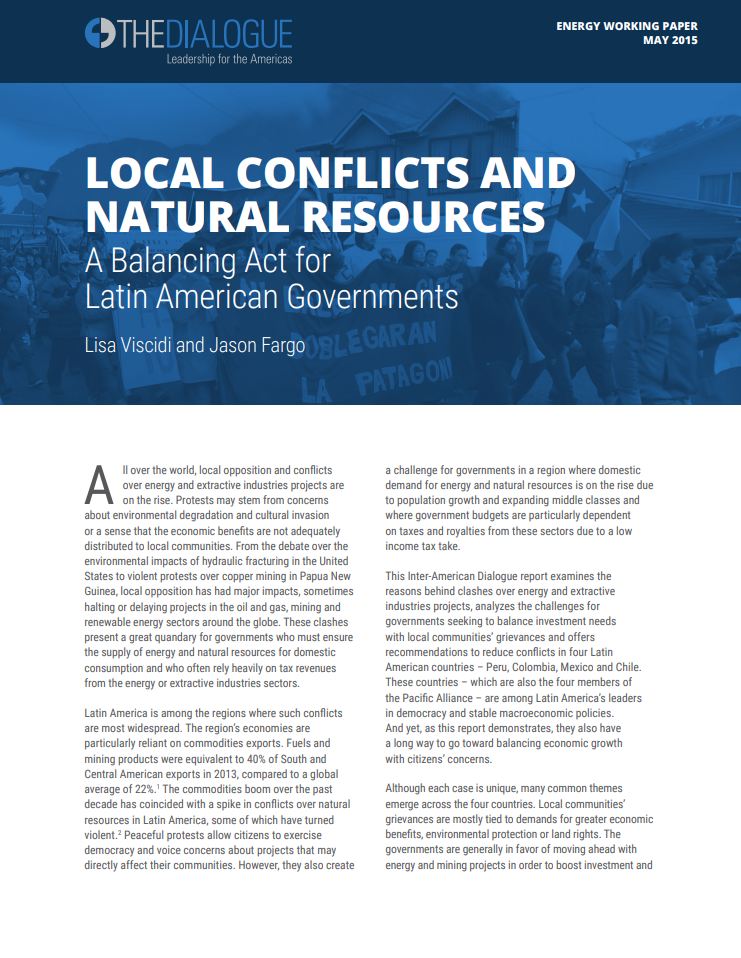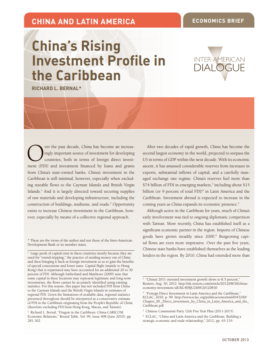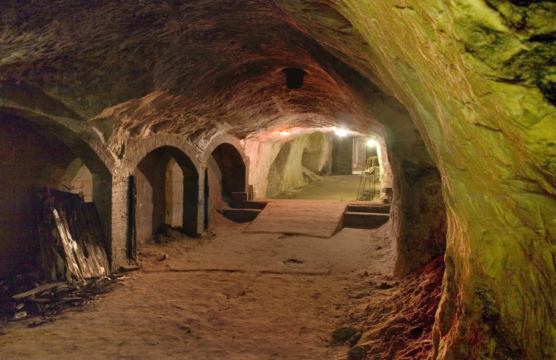What is the Outlook for Colombia’s Oil Sector?
What is the outlook for Ecopetrol and the Colombian oil sector in the short to medium term?
CLICK HERE TO ACCESS THE REPORT.
Conflicts over energy and natural resources are leading to social turmoil and posing serious challenges for investment projects all over Latin America. To better manage such conflicts, Latin American governments must step up their involvement in the consultation process and communicate more effectively with local communities about potential social, environmental and economic impacts, according to a new report by the Inter-American Dialogue.
The commodities boom over the past decade has coincided with a spike in conflicts over natural resources in Latin America. Protests may stem from concerns about environmental degradation or a sense that the economic benefits are not adequately distributed to local communities. These clashes present a great quandary for governments that must ensure the supply of energy and natural resources for domestic consumption and that often rely heavily on tax revenues from the energy or extractive industries sectors.
This Inter-American Dialogue report, co-authored by Lisa Viscidi, Director of the Energy, Climate Change and Extractive Industries Program, and Jason Fargo, Latin America Team Leader at Energy Intelligence Group, examines the reasons behind conflicts over energy and extractive industries projects, analyzes the challenges for governments seeking to balance investment needs with local communities' grievances, and offers recommendations to reduce conflicts in four Latin American countries – Peru, Colombia, Mexico and Chile.
These countries – which are also the four members of the Pacific Alliance – are among Latin America's leaders in democracy and stable macroeconomic policies. And yet, as this report demonstrates, they also have a long way to go toward balancing economic growth with citizens’ concerns. In all four cases governments lack clear processes, adequate resources and the political capacity to prevent and defuse conflicts. Communities are often not adequately engaged in consultations throughout the project and are not given sufficient information about the plans and potential impacts. Despite the challenges, cases of successful consultation and a growing understanding of best practices suggest these conflicts can be successfully managed and avoided.
Download the complete report below.
Lisa Viscidi, Program Director, Energy, Climate Change, and Extractive Industries
lviscidi@thedialogue.org
202-463-2571
@lviscidi
What is the outlook for Ecopetrol and the Colombian oil sector in the short to medium term?
Over the past decade, China has become an increasingly important source of investment for developing countries. China’s investment, however, in the Caribbean is still minimal.
Colombia has to remain competitive with other major producers such as Mexico to attract needed investment in extractive industries.


